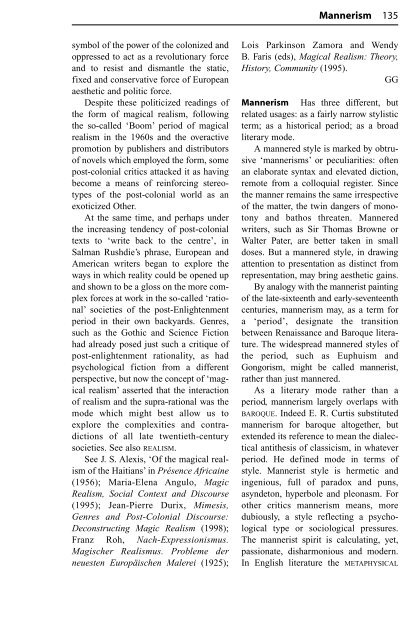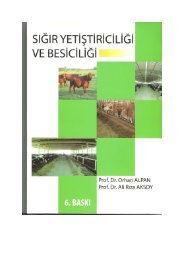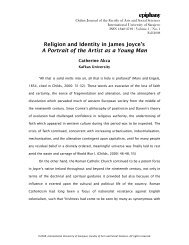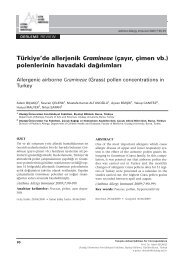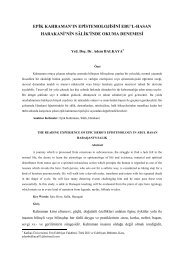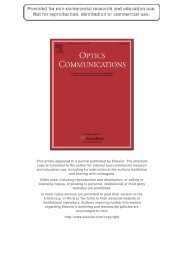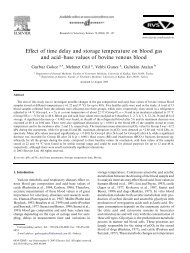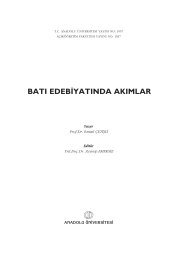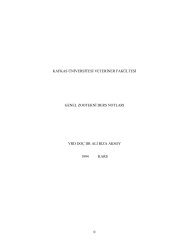The Routledge Dictionary of Literary Terms
The Routledge Dictionary of Literary Terms
The Routledge Dictionary of Literary Terms
Create successful ePaper yourself
Turn your PDF publications into a flip-book with our unique Google optimized e-Paper software.
symbol <strong>of</strong> the power <strong>of</strong> the colonized and<br />
oppressed to act as a revolutionary force<br />
and to resist and dismantle the static,<br />
fixed and conservative force <strong>of</strong> European<br />
aesthetic and politic force.<br />
Despite these politicized readings <strong>of</strong><br />
the form <strong>of</strong> magical realism, following<br />
the so-called ‘Boom’ period <strong>of</strong> magical<br />
realism in the 1960s and the overactive<br />
promotion by publishers and distributors<br />
<strong>of</strong> novels which employed the form, some<br />
post-colonial critics attacked it as having<br />
become a means <strong>of</strong> reinforcing stereotypes<br />
<strong>of</strong> the post-colonial world as an<br />
exoticized Other.<br />
At the same time, and perhaps under<br />
the increasing tendency <strong>of</strong> post-colonial<br />
texts to ‘write back to the centre’, in<br />
Salman Rushdie’s phrase, European and<br />
American writers began to explore the<br />
ways in which reality could be opened up<br />
and shown to be a gloss on the more complex<br />
forces at work in the so-called ‘rational’<br />
societies <strong>of</strong> the post-Enlightenment<br />
period in their own backyards. Genres,<br />
such as the Gothic and Science Fiction<br />
had already posed just such a critique <strong>of</strong><br />
post-enlightenment rationality, as had<br />
psychological fiction from a different<br />
perspective, but now the concept <strong>of</strong> ‘magical<br />
realism’ asserted that the interaction<br />
<strong>of</strong> realism and the supra-rational was the<br />
mode which might best allow us to<br />
explore the complexities and contradictions<br />
<strong>of</strong> all late twentieth-century<br />
societies. See also REALISM.<br />
See J. S. Alexis, ‘Of the magical realism<br />
<strong>of</strong> the Haitians’ in Présence Africaine<br />
(1956); Maria-Elena Angulo, Magic<br />
Realism, Social Context and Discourse<br />
(1995); Jean-Pierre Durix, Mimesis,<br />
Genres and Post-Colonial Discourse:<br />
Deconstructing Magic Realism (1998);<br />
Franz Roh, Nach-Expressionismus.<br />
Magischer Realismus. Probleme der<br />
neuesten Europäischen Malerei (1925);<br />
Mannerism 135<br />
Lois Parkinson Zamora and Wendy<br />
B. Faris (eds), Magical Realism: <strong>The</strong>ory,<br />
History, Community (1995).<br />
GG<br />
Mannerism Has three different, but<br />
related usages: as a fairly narrow stylistic<br />
term; as a historical period; as a broad<br />
literary mode.<br />
A mannered style is marked by obtrusive<br />
‘mannerisms’ or peculiarities: <strong>of</strong>ten<br />
an elaborate syntax and elevated diction,<br />
remote from a colloquial register. Since<br />
the manner remains the same irrespective<br />
<strong>of</strong> the matter, the twin dangers <strong>of</strong> monotony<br />
and bathos threaten. Mannered<br />
writers, such as Sir Thomas Browne or<br />
Walter Pater, are better taken in small<br />
doses. But a mannered style, in drawing<br />
attention to presentation as distinct from<br />
representation, may bring aesthetic gains.<br />
By analogy with the mannerist painting<br />
<strong>of</strong> the late-sixteenth and early-seventeenth<br />
centuries, mannerism may, as a term for<br />
a ‘period’, designate the transition<br />
between Renaissance and Baroque literature.<br />
<strong>The</strong> widespread mannered styles <strong>of</strong><br />
the period, such as Euphuism and<br />
Gongorism, might be called mannerist,<br />
rather than just mannered.<br />
As a literary mode rather than a<br />
period, mannerism largely overlaps with<br />
BAROQUE. Indeed E. R. Curtis substituted<br />
mannerism for baroque altogether, but<br />
extended its reference to mean the dialectical<br />
antithesis <strong>of</strong> classicism, in whatever<br />
period. He defined mode in terms <strong>of</strong><br />
style. Mannerist style is hermetic and<br />
ingenious, full <strong>of</strong> paradox and puns,<br />
asyndeton, hyperbole and pleonasm. For<br />
other critics mannerism means, more<br />
dubiously, a style reflecting a psychological<br />
type or sociological pressures.<br />
<strong>The</strong> mannerist spirit is calculating, yet,<br />
passionate, disharmonious and modern.<br />
In English literature the METAPHYSICAL


